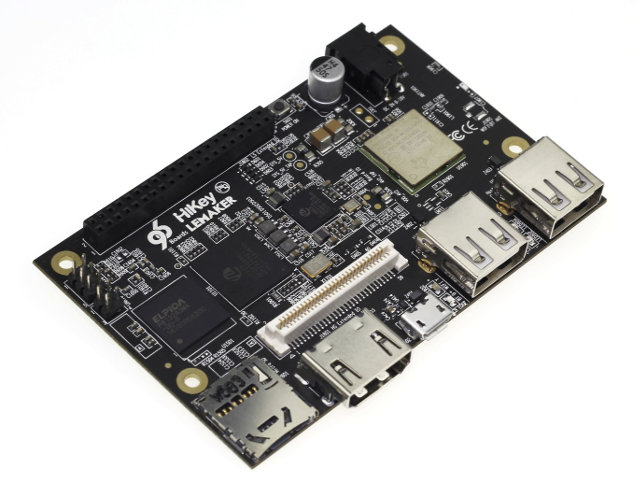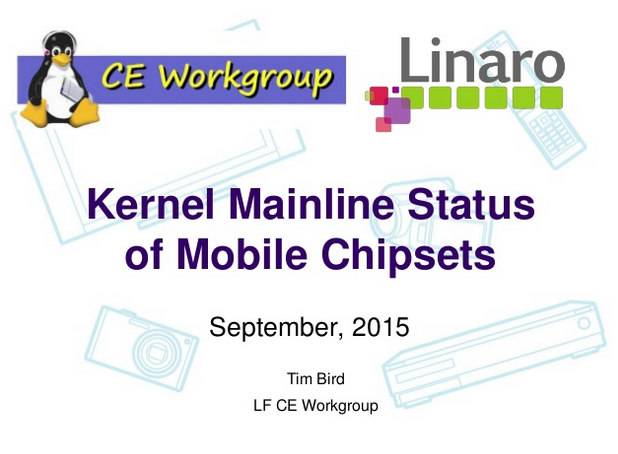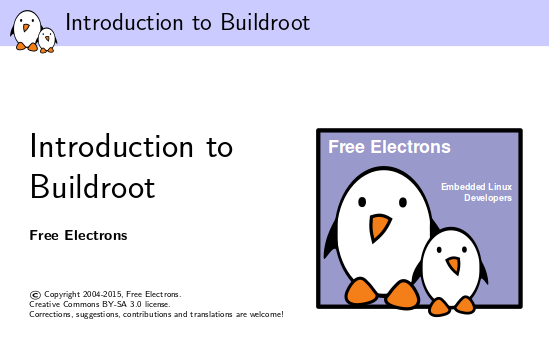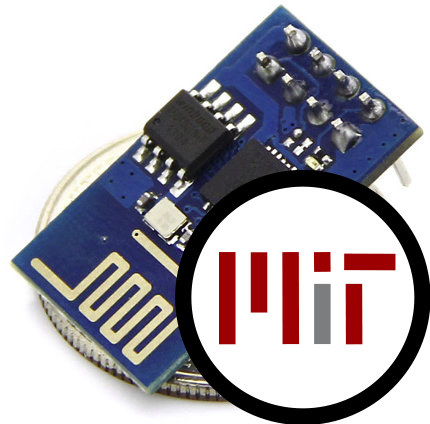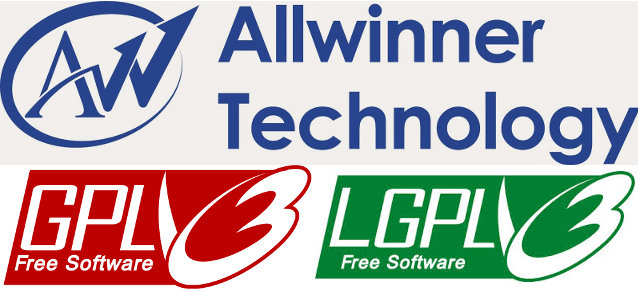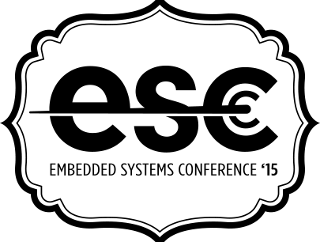Linaro’s 96Boards initiative was launched at the beginning of the year with Hikey board, and beside the hardware specifications, 96Boards also has some software requirements that include support for “bootloader (open source), accelerated graphics support (binary or open source), a Linux kernel buildable from source code based from mainline, or the latest Google-supported Android kernel version, or the last two LTS kernels, and one of more of the following operating systems: Android, Debian/Ubuntu, Fedora/Red Hat, or an OpenEmbedded/Yocto build of a Linux distribution”. In order to achieve this goal, Linaro introduced the Reference Software Platform for 96Boards, and they’ve now pushed the first Alpha release for Hikey and DragonBoard 410c boards. The release includes a bootloader, the Linux kernel, Debian and AOSP with firmware, source code, and documentation. Some highlights of the Reference Software Platform 15.10 Alpha release include: CE Debian RPB (Reference Platform Build) Debian 8.2 “Jessie” Linux 4.3 […]
Wind River Introduces Free Cloud-based Operating Systems for IoT Applications
After Google Brillo operating system was officially launched last week, another company has announced free operating systems for IoT. What’s peculiar is that the company is Wind River a vendor of commercial operating systems whose typical business model is to sell licenses for their operating systems and fees for their development services. Nevertheless, the company has now introduced Wind River Rocket real-time operating system, and Wind River Pulsar Linux operating system. Both OSes will interface with the company’s Helix Cloud software-as-a-service (SaaS) products, which is probably how the company intends to monetize their work, on top of customization services. Wind River Helix App Cloud is currently made of three products: Helix App Cloud cloud-based development environment for building IoT applications Helix Lab Cloud cloud-based virtual hardware lab for simulating and testing IoT devices and complex systems. Helix Device Cloud cloud-based platform for managing deployed IoT devices and their data. Some […]
Linux Kernel Mainline Status of Mobile SoCs Presentation at Linaro Connect SF015
Linaro Connect San Francisco 2015 is taking place this week, and several 96Boards have been presented including LeMaker Hikey and Qualcomm DragonBoard 410c, both of which will finally be available by the end of the year. But there are also many technical presentation and discussions that are uploaded to LinaroOnAir Youtube account, and they’ve greatly improved video and audio quality compared to the past, with presentation slides also available on Slideshare. I’ve just watched one of the session entitled “Kernel Mainline Status of Mobile Chipsets” by Tim Bird, Sony Mobile. Also the talk focus on mobile SoC, it’s also relevant to other consumer electronics products, and some embedded systems. The presentation states the extend of the issues, shares comparisons between the vendor device tree and mainline, and explains how developers can participate, with the talk ending with a discussion within the group of attendees. Here’s a summary of some of […]
Free Electrons Releases Buildroot Training Materials
Free Electrons develops embedded Linux & Android software, and also provides related training. On-site training sessions are scheduled from time to time, or organized on request, and they usually release their training materials for free, as they did for their Embedded Linux training in 2012, or their Yocto Project / OpenEmbedded course more recently. Thomas Petazzoni, Free Electrons’ Chief Technical Officer, recently informed me that the company also released training materials for Buildroot, which like the Yocto Project is a build system, but it had been around for much longer, and the company is actively participating in its development with over 2,800 patches submitted upstream over the years. Four main resources have been released for the course, under a Creative Commons BY-SA license: training materials for Buildroot – 325 pages Practical labs instructions (PDF) with BeagleBone Black – 32 pages Practical labs data (.tar.xz) – Patchsets for drivers, rootfs, and […]
Linaro 15.05 Release with Linux 4.1 and Android 5.1
Linaro 15.04 has been released with Linux 4.1-rc4, Linux 3.10.79 and 3.14.42 (LSK), and Android 5.1_r3. The Ubuntu image is now based on Vivid instead of Utopic. Android and Debian builds/images have been released for Hikey’s 96boards, Ubuntu Vivid and Android builds have been setup for Qualcomm’s Dragonboard 410c. A new platform, Socionext M8M, has also show in Linaro changelog. I could not find details about M8M, but Socionext is a “new company that designs, develops and delivers System-on-Chip products” and focuses on “imaging, networking and other dynamic technologies”. Their latest press release mentions a 4K media processor with build-in HDMI 2.0 Tx and Rx, so maybe M8M is based on that processor, but I can’t know for sure as they have several chips. Highlights of this release: Linux Linaro 4.1-rc4-2015.05 GATOR updated to version 5.21.1 updated integration-linaro-vexpress64 topic by ARM LT: PCI support added – for Juno r1. Linaro […]
ESP8266 SDK 1.1.0 is Now Released Under an MIT License
ESP8266 is the now famous dirt-cheap Wi-Fi SoC used for IoT applications. It can be used by hobbyists and companies alike. But for the later, there was a licensing issue as Espressif ESP8266 SDK was initially released under the GPLv3 license. GPL code is great and lots of open source projects are released under the most common open source license. But since proprietary, closed source software has still its place in the market place, some other more permissive licenses such as LGPL are used for library, and Android for example has an Apache License 2.0. So previously, if you developed an application using ESP8266 SDK, you’re code would have to be GPL too, since the license is viral. It would also cause issues if you had released your application under an Apache or MIT license. But now, all is well, as Espressif released ESP8266 SDK 1.10 under an MIT license, […]
Allwinner CedarX Media Codec Library GPL/LGPL Compliance Update
Last month, I wrote about potential open source licenses and VP6 copyright infringement by Allwinner with their CedarX media codec library, and then since there’s been a few developments. First, Allwinner sent me an email saying they’ve now updated Cedarx library and referring my previous article. Here’s an extract: Here, I have some update of the Allwinner’s open-source status. We have done a lot of discussion with the developers from the linux-sunxi communication about the software license of CedarX. For each question or requirement asked by the developers, Allwinner has identify and try to give the best solution. Now, we believe Allwinner’s CedarX license is fully compliant and resolves concerns from the community. And you can take the announcement https://www.mail-archive.com/[email protected]/msg10597.html as a reference. Allwinner is always supporting the open-source, and try to do better and better. You can see some update on the github https://github.com/allwinner-zh, and some feedback from developers: […]
Embedded Systems Conference 2015 Schedule – May 6-7, 2015
The Embedded Systems Conference took the name “Design West” for a couple of years, but this year, there’s no mention of Design West, and the Embedded System Conference 2015 will take place in Boston, MA, US on May 6-7, 2015. The 2-day event will have a demo hall, and well as sessions divided into 8 tracks: Connected Devices and the IoT Embedded Software Design Hardware: Design, I/O and Interfacing Prototyping Embedded Systems Design Software: Design, Languages, & Quality Fantastical Theater Teardowns The full schedule has now been posted, and I’ll build a virtual schedule with some of the sessions provided. Wednesday May 6, 2015 8:00 – 8:45 – Understanding Google/Nest Thread by Michael Anderson, Chief Scientist, The PTR Group, Inc. The IoT will live or die based on its connectivity. In examining existing wireless protocols, Google/Nest found most of them lacking. In order to address the needs for low-power wireless […]


